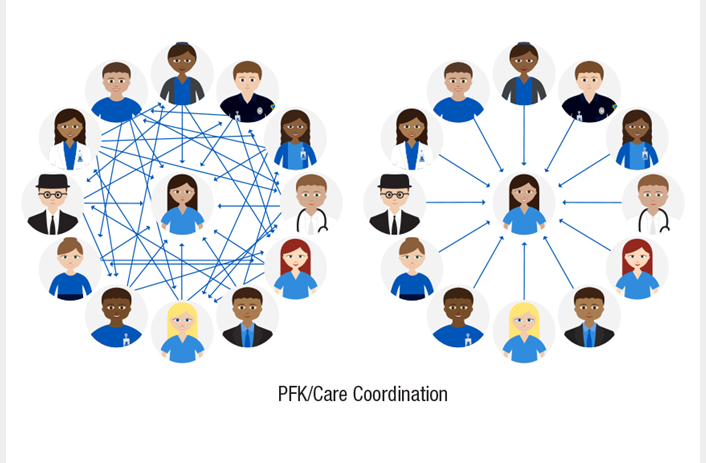Helping 17,000 Children With Medical Complexity Navigate the Health Care System

Partners For Kids, founded by Nationwide Children’s Hospital and now the largest pediatric accountable care organization in the United States, is responsible for the health of more than 400,000 children covered by Medicaid Managed Care across 47 Ohio counties.
Most of those children stay well with regular and preventive care, and so one of Partners For Kids’ primary focuses is on ensuring that care is of the highest possible quality.
But some children need more.
They are “medically complex” and have been diagnosed with acute, chronic medical or behavioral conditions requiring frequent care. Navigating the health care system can seem nearly impossible for the families of those children.
“Partners For Kids is at its best when we can successfully ‘fill in the gaps’ so that a complex health care system delivers better care to children who need it, ” says Sean Gleeson, MD, president of Partners For Kids.
That’s why Partners For Kids created its unique Care Navigation program as part of its model of value-based care. Since 2013, the Care Navigation team at Partners For Kids has coordinated care for approximately 17,000 medically complex children, actually reducing emergency department visits and inpatient bed days for some.
Despite the challenges of the COVID-19 pandemic, care coordinators continue to support families, easing their way through the health system and connecting them to critical community resources.
While care coordination is intended to help children who need more care than most, Care Navigation accomplishes so much more by taking a holistic approach, addressing the different social determinants of health that impact a child’s wellbeing, say Partners For Kids’ leaders.
“Care Navigation is meant to be the single point of contact for families,” says Sandra Beer, the business director for Care Coordination with Partners For Kids and Nationwide Children’s Hospital. “While we work with all the different medical providers and the managed care plans, we also work with everyone who supports that family, connecting the family to resources and making sure that they have everything they need to provide the best care for their child.”
In addition to creating an individual care plan and attending medical appointments with the child, care coordinators assist families and their providers with issues such as prior authorization or obtaining coverage for home health equipment. They work with schools to ensure children have services they need there. Families may also need to be connected to utility assistance, housing resources, transportation and food banks.
Recent data shows that Care Navigation equips families to better manage their child’s health condition. Children shown to be high utilizers of emergency departments had a 44% decrease in emergency department visits after being enrolled in the program, while children diagnosed with a behavioral health concern had a 64% decrease in inpatient bed days.
Since Care Navigation began at Partners For Kids, it has proven to be unique compared to other care coordination programs due to its physical integration into the health care system. Often, Partners For Kids’ care coordinators sit alongside the patient’s medical providers, allowing for an increased level of collaboration within a child’s complete care team and ensuring the best outcomes for children and their families.
According to Dr. Gleeson, “For these medically complex children, often the biggest impact is to support them and their families to bring order to a health care system that can feel overwhelming.”
With the onset of the pandemic, care coordinators have stepped in to help meet the many new challenges facing patients and their families, such as access to essentials – particularly baby formula, which became scarce in the early months of COVID-19.
While the pandemic has forced the Care Navigation program to adapt, one of the most substantial changes has proved to be positive. Because home visits are now far more limited, care coordinators have been using video visiting to stay connected with families. An analysis conducted in June showed that care coordinators have been just as successful keeping families engaged in the program as they were when home visits were the norm. Care Navigation plans to continue using video visiting into the future.
Adaptations like this demonstrate how despite the challenges of a global pandemic, Care Navigation continues to ensure thousands of children and their families have the critical resources and the relationship-based care they need.

“For these medically complex children, often the biggest impact is to support them and their families to bring order to a health care system that can feel overwhelming.”



